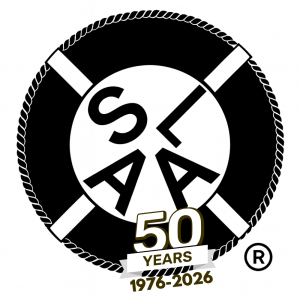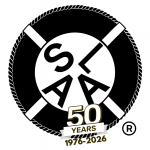The Question:
This question has several components. The first component is whether the Facebook private groups are affiliated with SLAA FWS in some fashion. It is not clear exactly what is meant by that, but my assumption is that the person asking the question wants to be sure they are legitimate groups. The second component of the question is more straightforward. Is the name appropriate and in keeping with Tradition 6?
My response is that meetings do not need to be affiliated with SLAA FWS, and that only adherence to Tradition 3 is needed. The second portion of Tradition 3 reads: “…any two or more persons gathered together for mutual aid in recovering from sex and love addiction may call themselves an SLAA group, providing that as a group they have no other affiliations.” I reviewed the main web page for all the Facebook groups, and is appears that they are all following it.
The largest Facebook group has a good description that is straight from our program literature, and appears to be well managed. The one from Charleston SC is specific to just one women’s group. The LAA meeting does not use the SLAA name. They are actually using Sex and Love Addiction Anonymous.
So, if the Facebook groups are following Tradition 3, then they have the right to call themselves an SLAA group.
As for Tradition 6, what is important is whether these groups are endorsing / lending our name / financing an outside enterprise. There was no indication of Tradition 6 violation on their main pages. However, I did not join any of the groups, so I’m not sure what they are posting.
One issue that I did see with all of them is that some individual’s full names are posted on the main page, which would appear to be in conflict with Tradition 11. Facebook is social media, and open to the public at large. Tradition 11 suggests that we remain anonymous in the public media. Having said that, I’m not sure if there is a functional way to be a member of a Facebook group without having one’s name show up (but I’m not a regular Facebook user).
The first one link is a major red flag. The main header has a Maya Angelou quote on it. If the group decides to call itself SLAA having the MA quote violates tradition 3 and 10- SLAA does not advertise or support MA nor does SLAA have an opinion on whether or not MA is in alignment without principles etc. Second the group says its endorsed by FWS and if it has not been endorsed by our knowledge then it is a lie and that specific quote needs to be taken off of Facebook.
Finally if the group finds that it helps newcomers than that’s ok as some AA groups have secret groups for their committees of those they serve etc. However its dishonest to say that the group is endorsed by FWS when it isn’t and in addition that group needs to outline that whoever joins the group is breaking their own anonymity ( as breaking their anonymity to each other and to Facebook with first and last names ) by the very fact that they are joining the group. Often times members do not realize that and if they are given the opportunities to join but from an anonymous profile they can safeguard their anonymity or choose not to.
Third link says SLAA but no mention of a preamble on the page so not sure on that one. If it wants to call itself SLAA it can but the tradition 12 has to be at least mentioned.
Tradition 3 is relevant here: “Any two or more persons gathered together for mutual aid in recovering from sex and love addiction may call themselves an S.L.A.A. group.”
Also, it’s important to note that in Tradition 2 we make it clear that “Our leaders are but trusted servants; they do not govern.” Therefore, it is not up to FWS to certify groups as that would be governing, although we do validate groups for our meeting lists. Even at that, it is up to each individual group to decide if they want to be listed on a meeting list by FWS.
Also, Tradition 9 is important. While our service organization is highly organized, we as a recovery Fellowship are not organized. Our service leaders do not give orders or make rules.
As far as Tradition 6: When we have a physical meeting at a church or a hospital or a community center, we do not assume that we are endorsing, financing or lending our name to that facility. I see the use of Facebook in the same way.
Each individual member of SLAA must decide for themselves if their meeting is within the spirit of the Traditions, as well as the 12 Concepts and the 12 Steps. The only way to determine if the Facebook meetings are ‘real’ SLAA meeting is to attend and decide for yourself based on your knowledge of our literature and Traditions.
However, it is important to note that Facebook is flimsy in terms of guaranteeing our anonymity. That’s not to say we shouldn’t support groups on Facebook et al, but each individual should be aware of its weaknesses.
There are a few areas that I see as problematic, the one group that is a Love Addiction Anonymous should be asked to take the words “Sex and” out of the group name.
Second the groups were setup so that the membership first and last names are visible to members both inside and outside of the groups. In addition the default setting allows your Facebook friends can see what groups you are a member of. Some FB friends may be you don’t want to know you are a member of SLAA. I would recommend these groups become private groups, which makes it harder for the addict still suffering to find the group, but gives some protection to the anonymity of the members of the group.


